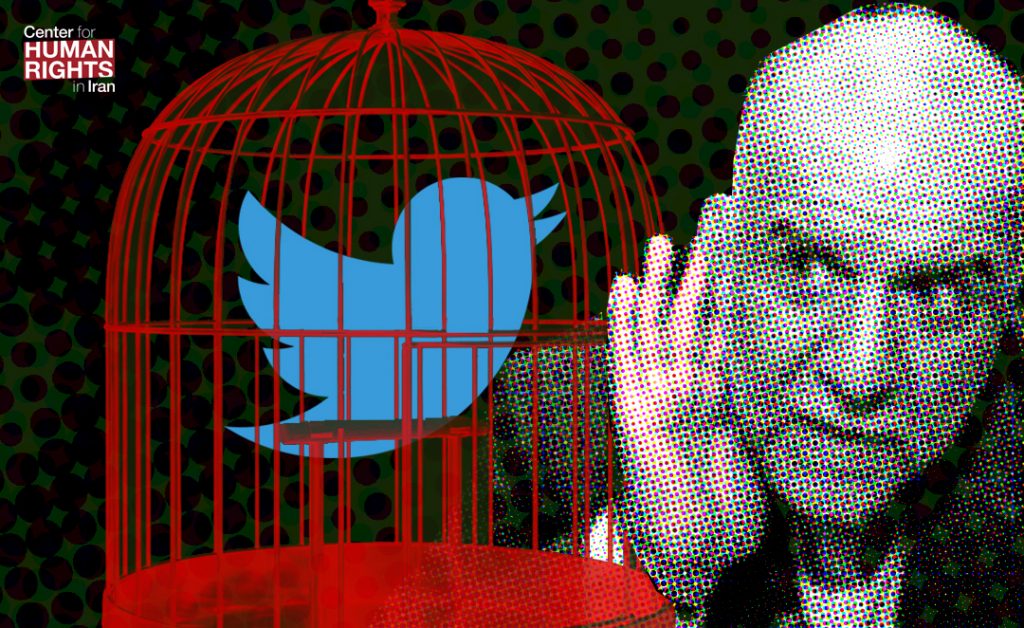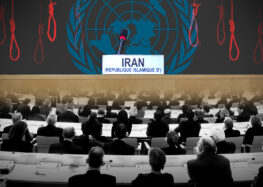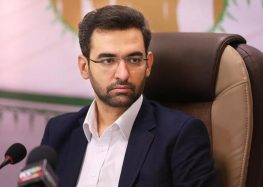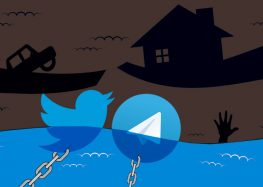Iran’s Oil Minister Joins Twitter, Reigniting Calls for All Iranians to Be Allowed to Use Social Network
 Twitter Banned in Iran Since 2009 But Many Officials Are Active Users
Twitter Banned in Iran Since 2009 But Many Officials Are Active Users
Iranians from across the political spectrum responded to the new presence on Twitter by Oil Minister Bijan Zanganeh by urging the government to lift the nine-year ban on the social media network.
“I have joined Twitter in order to establish a more dynamic and effective communication with domestic and foreign audiences,” Zanganeh wrote in his first tweet on December 12, 2018.
While welcoming Zanganeh as yet another Iranian official to open an account on Twitter, Telecommunications Minister Mohammad Javad Azari Jahromi tweeted, “We have a circle of friends on Twitter and it’s getting wider every day and yet the lawful request [to lift the state ban on Twitter] made by six ministers and two lawmakers has not been acted upon.”
Jahromi was referring to a letter sent to President Hassan Rouhani in May 2018 calling on him to allow people in Iran to legally use the social media network.
The letter was signed by Jahromi as well as Education Minister Mohammad Bathaei, Intelligence Minister Mahmoud Alavi, Justice Minister Alireza Avaie, Science Minister Mansour Gholami, Culture and Islamic Guidance Minister Abbas Salehi, and Members of Parliament Ramezanali Sobhanifar and Mohammad Kazemi.
“Add My Name to the List of People Requesting an End to the Ban on Twitter”
Soon after the oil minister’s first tweet, several Iranians began tweeting with the hashtag, “Remove_Twitter_Filter” in the Farsi language (#رفع_فیلتر_توئیتر), with many demanding an end to the ban.
In their tweets, Iranian users including government officials, lawmakers and journalists from across the political spectrum also used the phrase “please add my name” to express their support for the letter sent to Rouhani.
“Mr. Jahromi, as another member of Parliament, please add my name to the list of people requesting an end to the block on Twitter,” wrote Mohammad Reza Badamchi, a reformist representing the people of Tehran.
Fatemeh Hosseini, another reformist lawmaker, tweeted the same words.
Rashid Davoodi, a Shia cleric, wrote, “Mr. Azari Jahromi! … Explain to the decision makers that unlike those who signed that piece of scrap paper [letter], the people will not wait to be handed their rights! Whether you like it or not, they will take them, as they have in the past.”
Journalist Yashar Soltani reacted, “Filtering [blocking] Twitter is more impractical than hiding your head in the snow and ignoring realities, especially if those who imposed the ban decide to mobilize their cyber officers to have an effective presence on the network.”
“Mr. Jahromi, please add my name as an ordinary citizen to the list of people requesting an end to the ban on Twitter,” he added.
Mohammad Vahidi, a student, tweeted: “Mr. Islamic Republic, as opponents of overthrowing the state, all of us, including conservatives, reformists, and even [moderates] and hardcore leftists are fighting against the enemies of this land of ours. Don’t you want to free the hands of ordinary citizens and lovers of Iran and let them have access to this space without obstacles?”
Political science student Hoda Tohidi wrote, “Mr. Azari Jahromi, we expect more from you than just requesting the removal of the ban on Twitter. We know it was not you who imposed the ban but it seems like you are not making a strong effort against it either. Nevertheless, in support of this small effort, add my name to the list of people requesting an end to the ban on Twitter.”
Ali Mojtahedzadeh, a human rights lawyer, asked why government officials were campaigning against the ban when they technically have the power to lift it: “It seems like the lawmakers’ and cabinet members’ support for unblocking Twitter is a bit disingenuous. It’s understandable if I and other civil rights activists join this campaign because as ordinary citizens we don’t have any other leverage. But what about the other gentlemen? Don’t they have any power? Then what’s the point of being in the government or a member of Parliament?!”
On the other hand, some users expressed support for the ban, including Sadegh Nikoo, a journalist working for the Fars News Agency, which is affiliated with the Islamic Revolutionary Guard Corps (IRGC).
Nikoo added that he would support unblocking Twitter if the company agreed to Iran’s state censorship policies.
“If I was acting in place of judicial officials, I would make Twitter’s unblocking conditional to accepting Iran’s minimal demand to restrict things like pornography. In that case, I would certainly support removing the ban,” he tweeted.
Twitter and Facebook have been banned in Iran since 2009 when they were used to spread information about the massive protests that broke out in Tehran against the disputed result of the country’s presidential election that year.
The ban on Twitter has been partially lifted and then totally re-imposed over the years.
Despite the ban, dozens of Iranian officials maintain accounts on the social media networks—some in English and Farsi—including the supreme leader, Ali Khamenei.
Thousands of people in Iran with access to virtual private networks and other circumvention tools that enable users to bypass state bans also use the apps.
Khamenei and many other hardline Iranian officials fear internet freedom and view the internet as a Western plot to undermine the Islamic Republic. Their attempts to entice Iranians to exclusively use the state-created National Information Network—which the government can more easily monitor, censor and control than the worldwide web—are ongoing.
Many Iranian officials have strongly opposed any effort to lift the ban on Twitter during the last nine years.
In August 2018, Prosecutor General Mohammad Jafar Montazeri compared lifting the ban to a “crime.”
“After we shut down these networks via the Working Group for Determining Instances of Criminal Content, suddenly these six ministers write to me and ask to meet to lift the filter,” Montazeri said.
“But I didn’t go because if I did, I would have been an accomplice to a crime,” he added.






